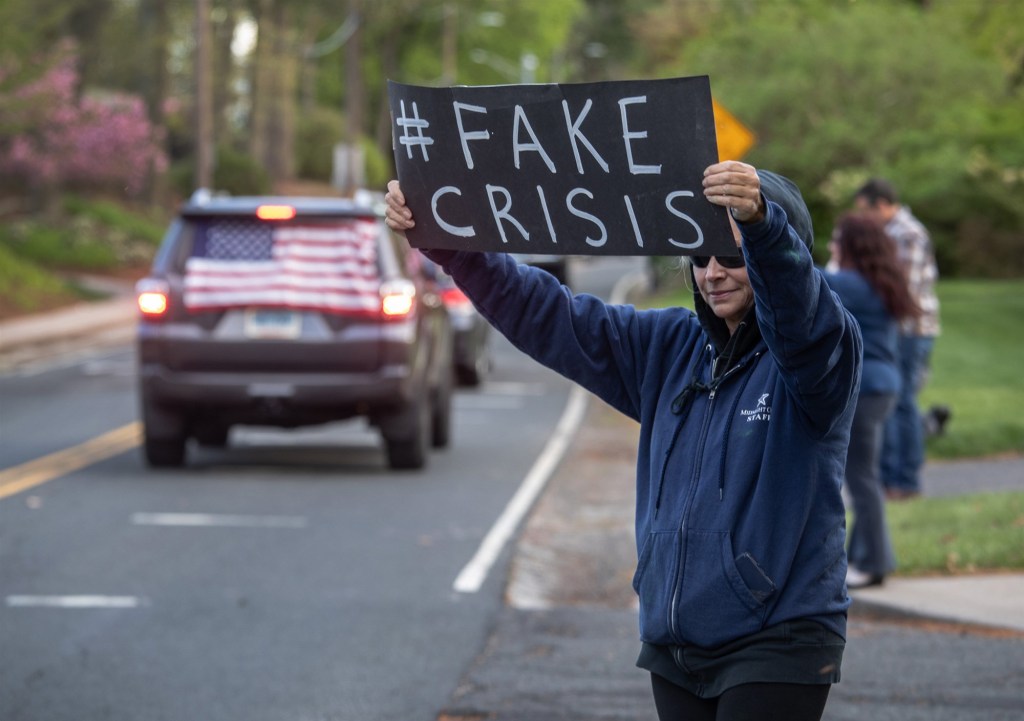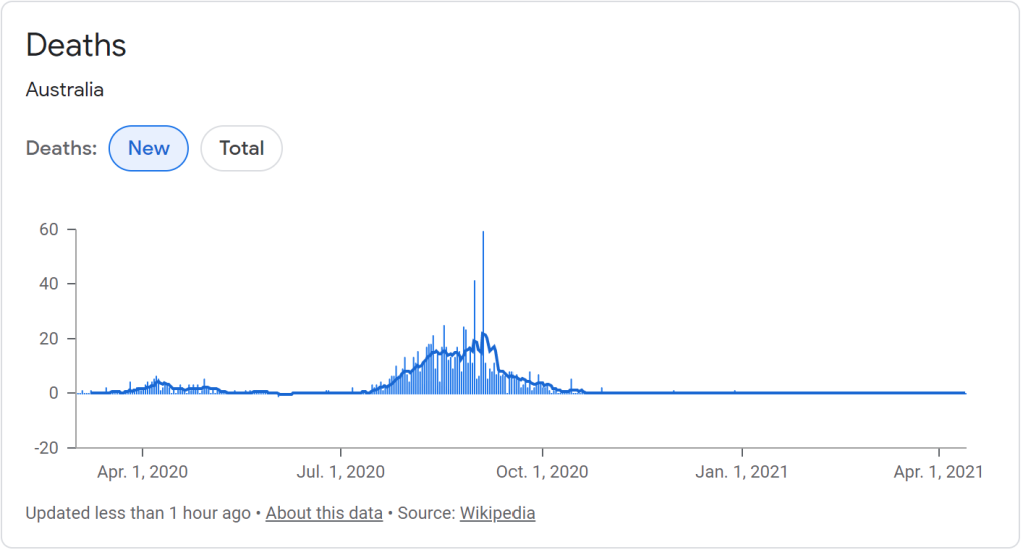Blogger: Bridget Koza
April 13, 2021

Alongside physical distancing, Zoom meetings, and toilet paper rampages, the pandemic has brought on one inescapable symptom; conspiracy theories. In a time of uncertainty with constant troubling and disturbing news, conspiracy theories provide people with control over the unknown. It is this very reason, however, why countries like Canada and the US are struggling to better the health of their citizens and why the world feels like a constant state of emergency.
People are left with time to kill and lives glued to social media. This mass consumption of information and the infinite depth of the internet activates a psychological tendency to make connections and generate our own presumptions. Psychiatric Doctor, Richard A. Friedman, however, notes “Our tendency to discern patterns and make sense of the world also makes us prone to cognitive errors, such as seeing connections between events when none exist.” 3

It’s not only the sudden reliance on social media for information, but conspiracy theories become more prevalent during cataclysmic events and social upheaval. The 9/11 crisis sparked both a media-rich environment and accelerated a “new age of paranoia”2. Even before the popularity of mass media, conspiracy theories were prominent during previous pandemics, such as the 1918 Spanish flu pandemic. At these times of crisis, the voices of government and media are amplified to solve nation-wide problems, but this results in a “we suffer because of the system” mentality among citizens. As author James Bridal best puts it, “Conspiracies literalize the horror we feel lurking unspoken in the world.”2 When I first saw my dad falling down the rabbit whole of FOX news or the multiple anti-mask protests taking place in London’s own Victoria park, I knew that this conspiratorial thinking was contagious.
While conspiracy theories can be harmless, such as the belief that the Earth is flat, they are also very dangerous. There is clear indication that conspiracy theories today create violence and increase the spread of COVID-19. Many people even before the pandemic have denied the success of vaccines, but conspiracy theories today have excelled the belief that vaccines are a governmental scheme to cause mass harm- that the whole pandemic is a hoax, a “plandemic”. The increase of mask-free protests and rallies activated by social media are allowing the virus to transmit and for death numbers to accelerate. Conspiratorial thinking can also affect a person’s general health. According to Friedman, the “belief in conspiracies and mistrust in general can discourage our patients from seeking medical treatment and adhering to it.” 3
Could it all be true? Could the decrease in conspiracy theories get us out of this pandemic already? Look at Australia for example. Aussies have been partying on the beach with zero deaths since October 2020 and a daily average of 10 cases (Figure 1). While Australia has the advantage of being an isolated island with a lower population density, there are still lots we can learn from their response.

The term ‘conspiracy theory, according to Bridal, “has more to do with the relation of people to power, than that of people to truth.” 2 Australia’s Bipartisan unity was essential to their emergency response. In March 2020 Conservative Prime Minister Scott Morrison advocated for a unified nation, stating “There are no blue or red teams. There are no unions or bosses. There are just Australians now.” 4 The social and political capital tried its very best to become neutral and supportive. These actions overall built trust amongst the public who in turn followed COVID-19 protocols.
Australia has had few protests and rallies compared to the US and Canada, and with those that have occurred the government took immediate action. The anti-vaccine protest in February 2021, after Australia’s rollout of the Pfizer and Oxford-AstraZeneca vaccines, the government concluded that vaccines will not be mandatory for Australians 1. With Australia’s Indigenous population having “a life expectancy of 8 years fewer than non-Indigenous Australians”, the pandemic became an opportunity for the government to listen and provide resources.4 Aussies overall don’t feel threatened by the government as much as Americans or Canadians do.
There is a clear indication that “having a strong bias to find structure and purpose in the world makes us susceptible to conspiracies because they give us a clear, if erroneous, explanation of how events fit together.”3 On the other hand, there are ways of avoiding the violence that conspiratorial thinking creates. While our governments need to be more supportive and punctual, everyone needs to adopt a “I suffer because we all do” mentality. We need to reject the belief “that occurrences (e.g., the pandemic) happen to us for a reason” and adopt “a strong aversion to seeing events as random and coincidental.”3
References
1.”Anti-Vaccination Protesters Rally In Australia”. BBC News, 2021, https://www.bbc.com/news/av/world-australia-56141183. Accessed 13 Apr 2021.
2. Bridle, James. New Dark Age: Technology And The End Of The Future. Verso, 2019, p. Chapter 8: Conspiracy.
3. Friedman, Richard A. “Why Humans Are Vulnerable To Conspiracy Theories”. Psychiatric Services, vol 72, no. 1, 2021, pp. 3-4. American Psychiatric Association Publishing, doi:10.1176/appi.ps.202000348. Accessed 13 Apr 2021.
4. Haseltine, William. “What Can We Learn From Australia’S Covid-19 Response?”. Forbes, 2021, https://www.forbes.com/sites/williamhaseltine/2021/03/24/what-can-we-learn-from-australias-covid-19-response/?sh=39a02fd93a01. Accessed 13 Apr 2021.
5. Honigsbaum, Mark. “Spanish Influenza Redux: Revisiting The Mother Of All Pandemics”. Perspectives: The Art Of Medicine, vol 391, no. 10139, 2018, pp. 2492-2495. The Lancet Journal, doi:https://doi.org/10.1016/S0140-6736(18)31360-6. Accessed 13 Apr 2021.
6. John Hopkins University. “Covid-19 Cases In Australia”. News.Google.Com, 2021, https://news.google.com/covid19/map?hl=en-CA&mid=%2Fm%2F0chghy&gl=CA&ceid=CA%3Aen. Accessed 13 Apr 2021.
7. John Hopkins University. “Covid-19 Cases In Canada”. News.Google.Com, 2021, https://news.google.com/covid19/map?hl=en-CA&mid=%2Fm%2F0d060g&gl=CA&ceid=CA%3Aen. Accessed 13 Apr 2021.

1 comment